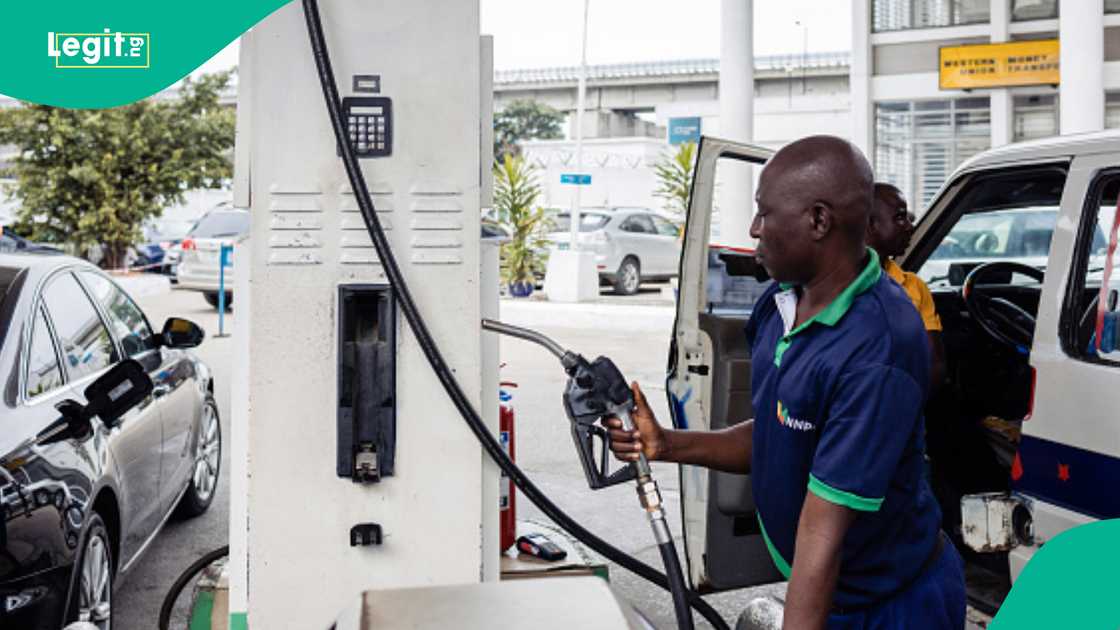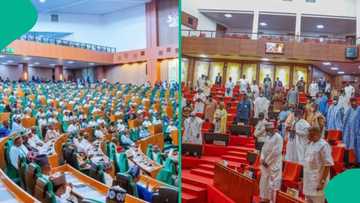It Will Protect Jobs: Group Hails Tinubu’s 15% Fuel Import Levy as Bold Economic Reform
The Conference of Registered Voters in Nigeria (CRVN) has applauded President Bola Ahmed Tinubu for approving a 15 percent import duty on petrol and diesel, describing the policy as a courageous and strategic move to strengthen Nigeria’s energy independence and protect local investments in the refining sector.
In a statement issued on Saturday, the group’s National President, Dr. Ebikeme Edesiri, said the measure demonstrates Tinubu’s commitment to reforming Nigeria’s petroleum industry, fostering local production, and promoting long-term economic stability.
“A protective,not punitive policy”
Dr. Edesiri emphasized that the 15 percent levy is not intended to punish importers but to protect Nigeria’s refining industry from unfair competition posed by cheap imported fuel.

Source: Facebook
“President Tinubu has once again shown that he is a reform-minded leader who understands what it takes to build a stable economy. This import duty is not punitive—it is protective. It shields our local refineries from unfair competition, supports Nigerian workers, and helps to secure the future of our oil and gas industry,” he stated.

Read also
"No fuel queues during festive season": Dangote assures Nigerians of steady petrol, diesel supply
According to the CRVN, the decision would encourage private investment, create new jobs, and reduce Nigeria’s dependence on imported petroleum products, which has historically drained foreign exchange and weakened the naira.
Stimulating growth and revenue
The group noted that the policy is a win-win for government, industry, and citizens, as it will not only strengthen the local energy market but also boost government revenue for national development.
“By curbing the influx of cheap imported fuel, the new duty will protect huge domestic investments in refining, stimulate competition, and generate resources for critical infrastructure such as roads, power, and healthcare,” Edesiri said.
He urged the federal government to ensure transparent management of the new revenue streams and channel them toward improving key sectors that directly impact citizens’ welfare.
Aligned with broader economic reforms
Edesiri explained that the import duty aligns with the President’s broader reform agenda, which includes fuel subsidy removal, exchange rate unification, and the expansion of non-oil revenue sources to stabilize the economy.
“Each of these reforms reflects a consistent and visionary economic direction. President Tinubu is not playing politics with policy. He is making tough but necessary decisions that will set Nigeria on the path of sustainable growth,” he added.
Call for patience and support
The CRVN appealed to Nigerians to remain patient and supportive as the economic adjustments take effect, noting that self-sufficiency cannot be achieved overnight.
“We must be patient and support these policies. What we are witnessing is a deliberate rebuilding of our economy from within. It requires the cooperation of every Nigerian,” Edesiri stated.
A step toward national renewal
The group concluded by describing the import levy as an act of national renewal that will protect Nigerian refineries, secure jobs, and stimulate growth in the domestic energy market.

Source: Getty Images
“This 15 percent petroleum import duty will help reposition the sector and bring development closer to the common man,” Edesiri affirmed, adding that the CRVN remains confident in Tinubu’s leadership and reform agenda.
Imported petrol, diesel prices to rise as FG slams 15% tariff
Legit.ng earlier reported that President Bola Ahmed Tinubu has approved a 15% import duty on Premium Motor Spirit (petrol) and Automotive Gas Oil (diesel), a move that signals one of the most consequential shifts in Nigeria’s downstream oil sector since fuel subsidy removal in 2023.
The new tariff framework, contained in a presidential memorandum dated October 21, 2025, seeks to balance import and local refining costs while strengthening the nation’s energy independence under the Renewed Hope Agenda.
According to the document endorsed by President Tinubu, the new tariff “is not revenue-driven but corrective.” It is designed to stop duty-free imports from undercutting Nigerian refiners such as Dangote Refinery and modular operators, which have begun domestic production.
Source: Legit.ng




